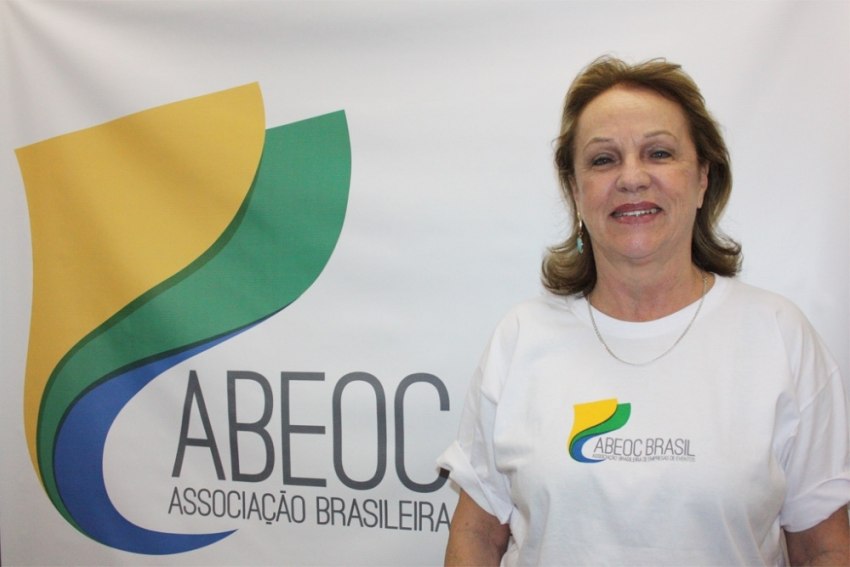Brazil is tailor-made for holding events
25/11/2014
It's Anita Pires who says it. President of ABEOC (Brazilian Company and Events Association), Anita shares her expectations for the 26th Brazilian Congress of Business and Professional Events - Events Brazil 2014. In the aftermath of the World Cup, Anita Pires identifies key lessons learned from its organization and highlights the main challenges both ABEOC and the Brazilian events sector now face.
What are your expectations for your next Congress?
The best possible. We have just launched a survey on the events sector in Brazil and it will be discussed during Eventos Brasil 2014. Today we know that this activity in the country is responsible for 4.3% of GDP. The turnover of the sector in 2013 was around €67 billion, having created 7.5 million jobs. In addition, during the Congress we are offering tools to equip the production chain, the tourism business. It's a great opportunity, a new and dynamic moment for all of us.
What topics will be discussed?
Eventos Brasil 2014 is the event for those who make events. Our idea is that the activities offered in the Congress help to update our members and all those who participate. We will have panels with major events organizers in Brazil, like the “Eventos Fora de Série”, which brings the experience of collaborative events such as World Youth Day, that brought more than three million people to Rio de Janeiro. We're having talks focused on economics and other activities that will discuss the sector's future. We are also having a Business Roundtable supported by from Sebrae (Brazilian Service of Support for Micro and Small Enterprises), where we will create the right environment for buyers and suppliers to do business and make plans for 2015. A workshop will show the Academy's role in the events market and we want to bring these worlds closer. Academic work will be presented and complement our discussion. We'll also talk about the trends for this market. Students from Senac (National Commercial Training Service), for example, will use the congress as an opportunity to be professional.
How many people are expected in Sao Paulo?
We expect to receive around 1,000 participants between associates, professionals, academics and students.
A few months after the World Cup, what challenges are now faced by the Brazilian event industry?
It can't be denied that the World Cup has brought us great visibility. It is an opportunity we can not miss. It is important to negotiate with the public sector to establish public and market policies that take us to an international level and attract events to Brazil. Our country has shown that it is a privileged destination with tremendous potential, but we need to implement clear and effective promotional activities abroad. Professional qualification has been a major goal of ABEOC Brasil. On its account, we have already created the Quality Program in partnership with SEBRAE, which makes available to companies opportunities for improving management and certification that will enable greater visibility and quality of services. About 240 companies already participate in this Program that also provides certification through the ABEOC Brazil Quality Seal, with the technical support of ABNT (Brazilian Technical Standards Association).
What are the main lessons that Brazil, and particularly this industry, withdrew from this major event?
Brazilians know how to host and the country is tailor-made for holding events, it has the ability to interact with other people. Another lesson is that we are able to hold large events. Our own carnival is an extraordinary example. But we have to provide the skills, to qualify our professionals, ensuring the quality of service. The Cup, and also the Olympics, show that our sector is connected with many other segments and that we need to move forward in terms of legislation and infrastructure to provide legal and business conditions. Another learning is that planning must be a part of both the public sector and the market's culture. There was no planning and thus we lost many opportunities that came along an event as the World Cup.
And what are the current challenges of ABEOC?
Our main challenge, besides the sector professionalization, is to prepare our cities to host all sized events. We need to improve our infrastructure with regards to convention centers, airports, hotels, air and road access. ABEOC now has 500 members and it is represented in all the seats of the market and national councils. ABEOC has reinvented itself and still has to continue to invest in the culture of business associations and make available to the market the necessary tools for this sector to generate increasing wealth and jobs for our country.


